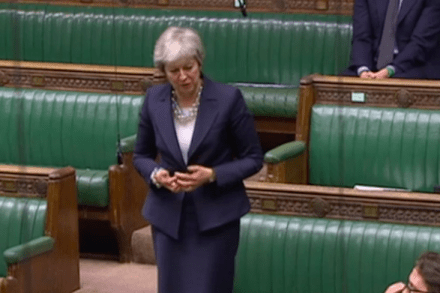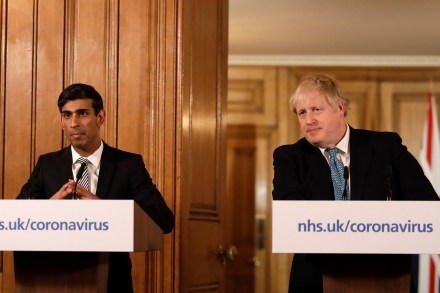Theresa May asks the unanswerable question on Covid-19 at PMQs
Prime Minister’s Questions offered a stark reminder of the situation the UK is in. As a result of coronavirus safety fears, the weekly event was drastically pared down. MPs were only allowed in the Commons Chamber if they were on the order paper – along with the front bench for the Tories and Labour. Those who made it into the Chamber sat far apart. Jeremy Corbyn used what could be his final turn at the despatch box as Labour leader (pending a decision on early recess) to press the Prime Minister on financial measures for the vulnerable and raise concern over the limited testing of NHS staff for Covid-19. Johnson said progress





















